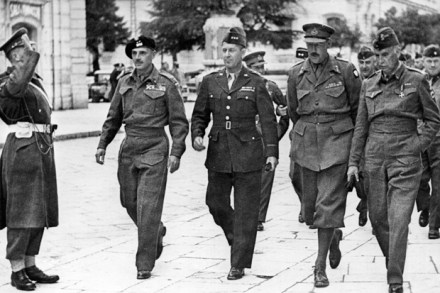General Anders to the rescue
Until Poland applied to join the EU in the 1990s, the biggest single influx of Poles into this country was in the immediate aftermath of the second world war. Around 200,000 Poles who had fought for the Allies chose to seek refuge here, rather than return to their homeland and face life under Stalin. Many of them had been members of the most curious of all the armies that took part in the conflict: the Polish Army of the Soviet Union and the Middle East, otherwise known as the Anders Army. From 1941 the magnetic General Wladyslaw Anders, a cavalry officer in a Russian Tsarist regiment during the first world war,




















